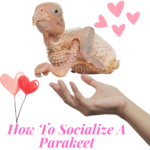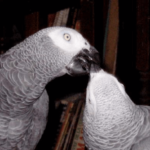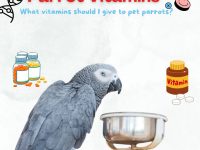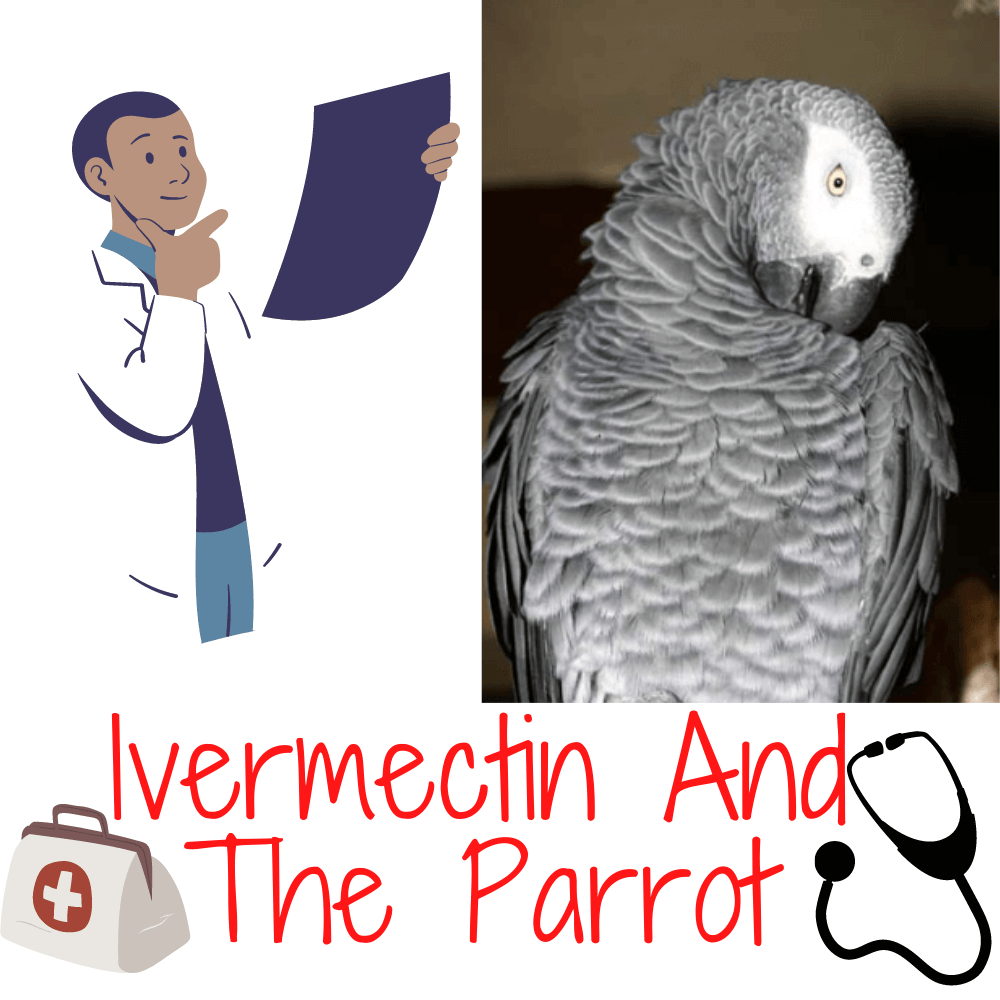
Ivermectin for birds
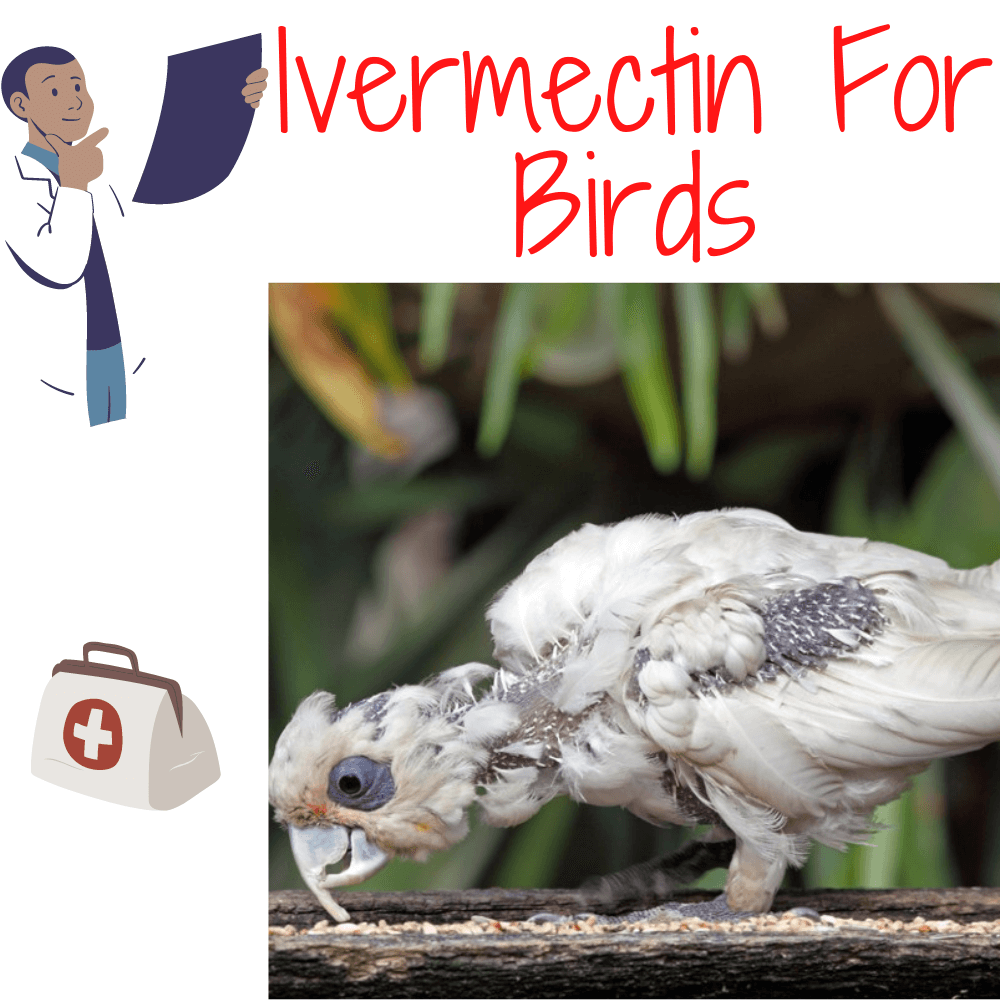
It is very likely that your parrot has no parasites at all. All birds take jealous care of their plumage and this is normal. The beak is used to smooth out accessible feathers and the claws do the job for the head feathers. There are even some who like to flatter themselves with various objects! As long as the bird does not pluck its feathers on its own or there are no bald areas, there is no cause for concern. As the parasites roam everywhere on the body when they infest a bird their presence causes a generalized itch and is not localized on the tops of a wing for example.
Your bird is trying to tell you something. Has his wing been checked? Perhaps he has arthritis or any other discomfort related to his old fracture? As for its loss of feathers, we must not forget that spring is the time for moulting. During this period, parrots are more active in maintaining their plumage.
The new feathers are wrapped in a thin envelope as they emerge from the follicles. By freeing them from this envelope, tiny white-grey particles are produced. The most reliable way to identify small black specks that you have seen is to take a sample to the vet. He can look at them under a microscope. Do not treat your parrot yourself with Ivermectin. First, your bird is unlikely to have parasites based on the symptoms described ( do not forget that spring is the time for moulting. During this period, parrots are more active in maintaining their plumage.
The new feathers are wrapped in a thin envelope as they emerge from the follicles. By freeing them from this envelope, tiny white-grey particles are produced. The most reliable way to identify small black specks that you have seen is to take a sample to the vet. He can look at them under a microscope.
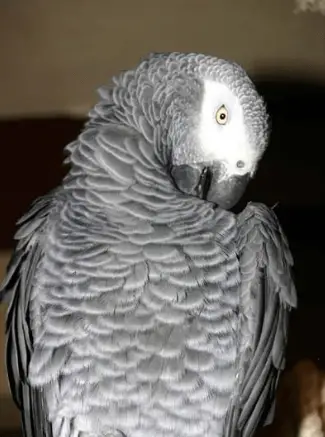
Do not treat your parrot yourself with Ivermectin. First, your bird is unlikely to have parasites based on the symptoms described ( do not forget that spring is the time for moulting. During this period, parrots are more active in maintaining their plumage. The new feathers are wrapped in a thin envelope as they emerge from the follicles. By freeing them from this envelope, tiny white-grey particles are produced.
The most reliable way to identify small black specks that you have seen is to take a sample to the vet. He can look at them under a microscope. Do not treat your parrot yourself with Ivermectin. First, your bird is unlikely to have parasites based on the symptoms described ( The new feathers are wrapped in a thin envelope as they emerge from the follicles. By freeing them from this envelope, tiny white-grey particles are produced.
The most reliable way to identify small black specks that you have seen is to take a sample to the vet. He can look at them under a microscope. Do not treat your parrot yourself with Ivermectin. First, your bird is unlikely to have parasites based on the symptoms described ( The new feathers are wrapped in a thin envelope as they emerge from the follicles. By freeing them from this envelope, tiny white-grey particles are produced.
The most reliable way to identify small black specks that you have seen is to take a sample to the vet. He can look at them under a microscope. Do not treat your parrot yourself with Ivermectin. First, your bird is unlikely to have parasites based on the symptoms described ( Do not treat your parrot yourself with Ivermectin. First, your bird is unlikely to have parasites based on the symptoms described ( Do not treat your parrot yourself with Ivermectin. First, your bird is unlikely to have parasites based on the symptoms described (get it checked out by the vet anyway to be sure ) and secondly, Ivermectin can cause serious side effects and even death if not dosed properly.
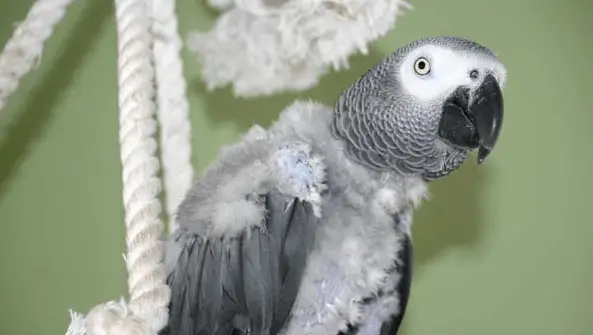
Ivermectin identity card
Ivermectin is a medicine, not a common pest control product. It should be administered under prescription when really needed. The dosage is determined based on the precise weight of the animal, especially if it is given orally or by injection. Occasionally it is diluted and applied to the skin. It should be remembered that this medication is intended for horses, cattle, sheep and pigs. Its use in birds is an unapproved use. However, several bibliographic references indicate that when administered properly, it carries very little risk of complications. However, overdoses can cause death.
Ivermectin is part of the avermectin family and comes from the fermentation of a naturally occurring microorganism in the soil: Streptomyces avermitilis .
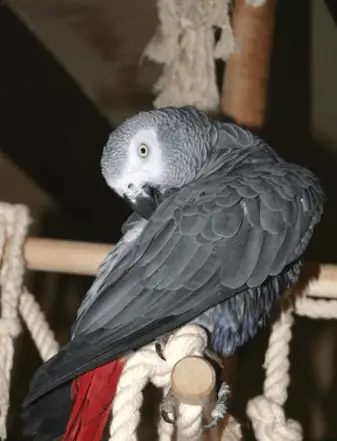
Main Features
Ivermectin is a very effective and broad-spectrum antiparasitic. It is used to treat infestations of body mites ( examples: red mites, parakeet beak gall ), tracheal mites and certain intestinal worms. The mode of action of Ivermectin is unique. It acts on a very specific neurotransmitter ( gamma-aminobutyric acid or GABA for close friends!) which is found in large quantities in some parasites.
It stimulates its release, which has the effect of blocking the normal transmission of nerve impulses. All this little chemical merry-go-round causes the parasite to paralyze and then die. As Ivermectin has no effect on parasite eggs, a single administration is not sufficient to get rid of an infestation. In addition to ensuring that the dose is correct, Ivermectin should be given at a specific time interval.
This can vary from parasite to parasite. Thus, the first dose is used to kill adult parasites, then the second kill newly hatched parasites before they reach sexual maturity. Spaced treatments too far apart allow young parasites to reproduce, which defeats the treatment.
An annual or semi-annual pest control treatment is absolutely not necessary if a bird does not have parasites. In the event of an infestation, proper treatment coupled with adequate environmental disinfection resolves the problem forever, unless the bird is brought in contact with another infected individual or contaminated accessories.
Toxicity
In birds, adverse reactions of acute toxicity are reported: digestive disorders, anorexia, lethargy, neurological disorders, cardiovascular disorders, and death. No antidote is available. If the bird does not die quickly, supportive ( fluids, gavages ) and symptomatic care may be attempted. Parakeets and some finches are more sensitive to adverse effects although cases of toxicity have been reported in several species: pigeon, raptors, pelican, cormorant, and Psittacidae.
Stability and environmental considerations
Ivermectin is stable for five years when stored properly in a container ( 15 ° to 30 ° C and protected from light ). This stability is worrying when it is prevalent in nature. Depending on the circumstances, its half-life in the soil in winter is 9-217 days and in summer 9-14 days. It adheres quickly and firmly to the ground. Runoff can easily carry it to lakes and streams where it can wreak havoc; Ivermectin is very toxic to fish, shellfish and turtles. Residues and containers of Ivermectin should be incinerated or landfilled in a legal manner.
The ease with which people can obtain Ivermectin is of concern to both the health of our parrots and that of some animals in our wildlife.

